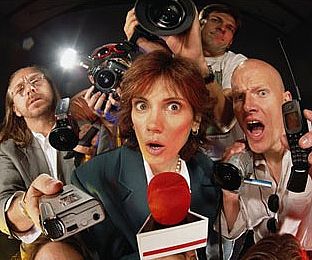President Obama is raising less money this year than he did in 2008. Quelle disaster! But wait: during the first half of 2008 Obama was in a tightly contested primary contest. This year he’s running unopposed. So it’s not very surprising that the pace of fundraising is a little less frenetic this time around
In any case, this is what a couple of political scientists told BuzzFeed’s Rebecca Elliott when she called them to talk about Obama’s money woes for an article she was working on. But apparently that didn’t make a very good story, so their comments  never made it into the final piece. Jonathan Bernstein wonders if public complaints about this kind of behavior will change the way reporters operate:
never made it into the final piece. Jonathan Bernstein wonders if public complaints about this kind of behavior will change the way reporters operate:
You know, lots of us (by which I mean both political scientists and anyone who has expertise and gets on reporters’ dial lists) have had the experience of being interviewed as “experts”, only to find that what a reporter really wanted was to find someone to say something the interviewer believed, but needed someone “objective” to say. That’s a well-known phenomenon. What happens, however, when those experts choose to report on that interaction — and have an easy way to do so that the rest of their “expert” class will see? Or perhaps not that version, but the one where the reporter calling you doesn’t seem to know the basics, or the one where, as in the example above, the reporter ignores everything you said and writes the same story she intended to write.
And not only that (after all, email lists uniting expert communities go back more than 20 years), but the combination of twitter plus blogs is something that the expert community use that the reporters interested in those experts can see, too. In other words, there’s now a risk that if you consult experts, you’ll wind up getting a blast of negative publicity both in that expert community and among your peers in the press.
I’m actually surprised this doesn’t happen more often. After all, as Jonathan points out, the existence of blogs and Facebook and Twitter and listservs makes it pretty easy for interviewees to chat about their interactions with the press. But it doesn’t actually happen all that often. I can think of several possible reasons for this:
- The vast majority of interactions with reporters are pretty boring and not worth writing about.
- Writing about a reporter interviewing you might sound a little conceited (“Look Ma, I’m being interviewed!”).
- Or it might make you sound like a rube. Sophisticates take this stuff in stride.
- Or it might make you sound like a bellyacher.
- Maybe most reporters do a good job and there’s not really much cause for complaints in the first place.
- Sources don’t want to risk not getting calls in the future, and dishing on reporters might get you blacklisted.
What else? Is this kind of thing likely to increase? If it does, will it make much difference? Or will it just become the new normal and nobody will really care?














